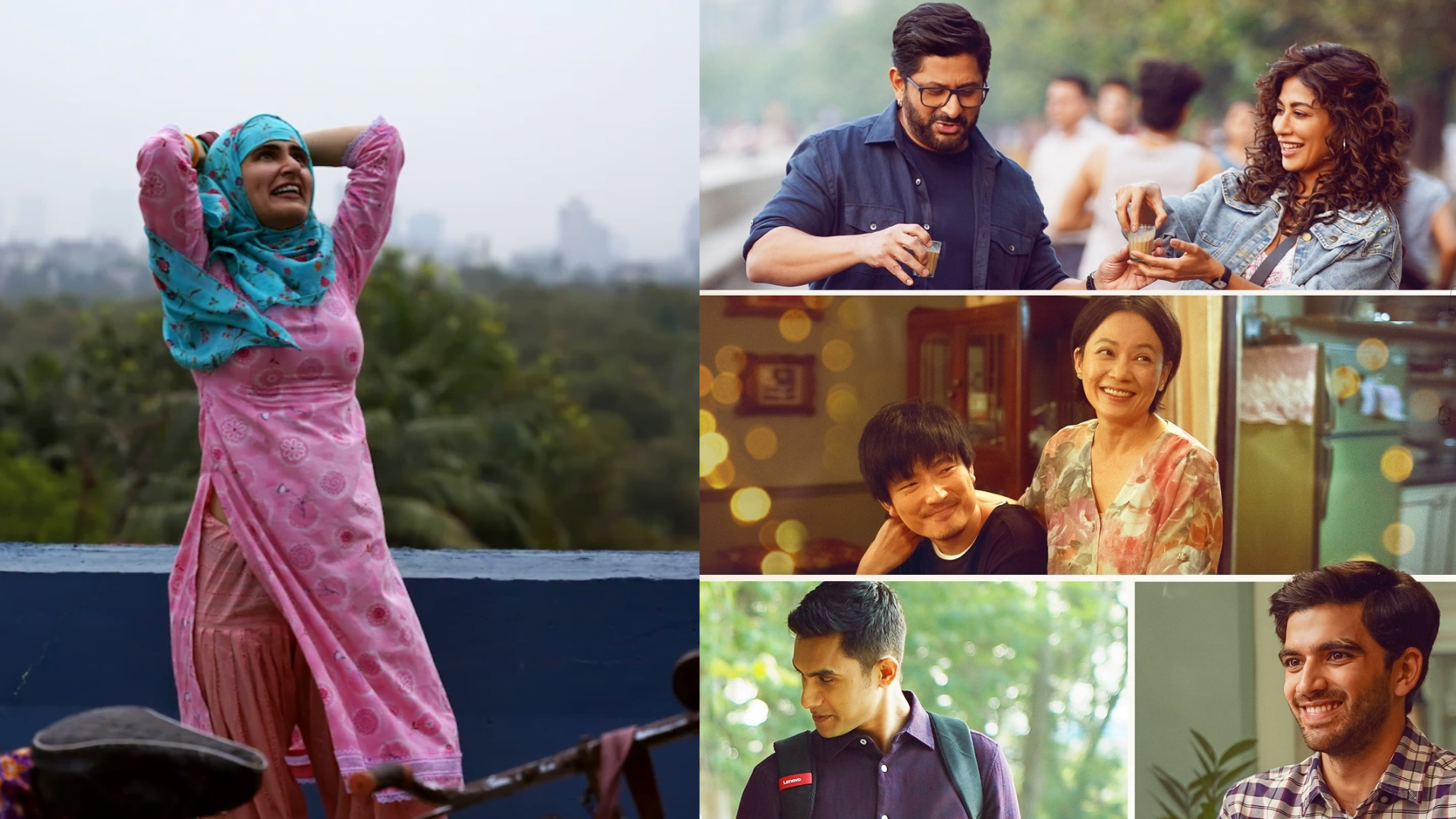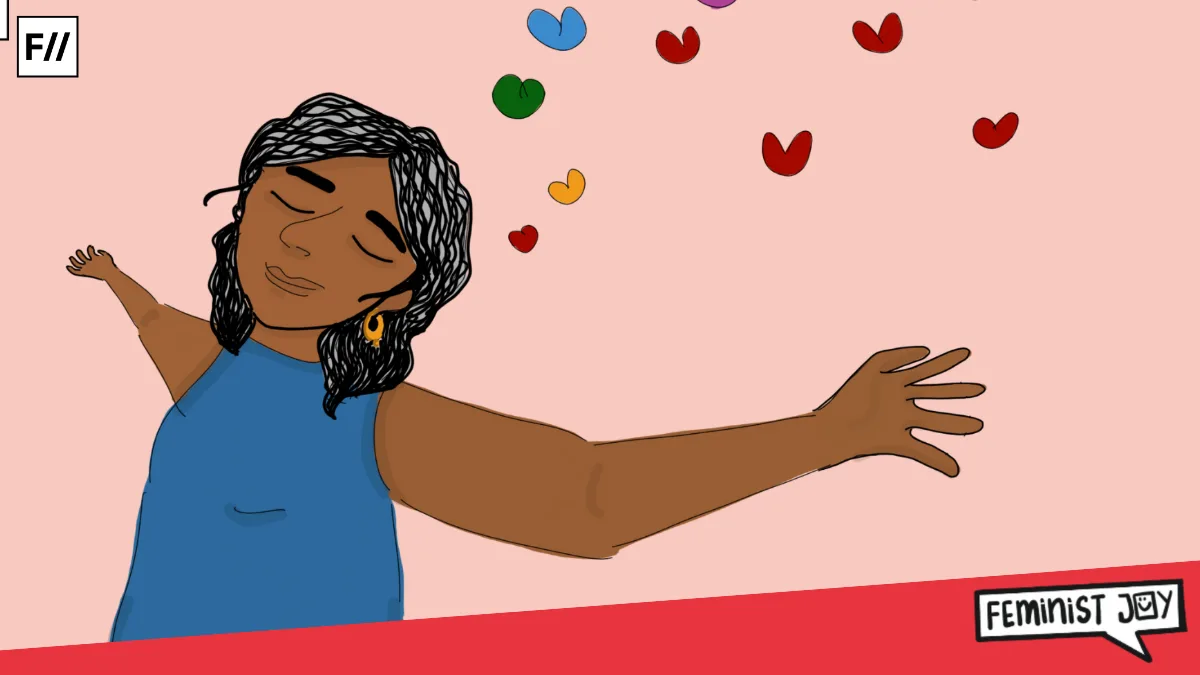Recently I stumbled upon the trailer of Modern Love, Mumbai chapter, and not to my surprise; I was hooked. Whether it was the familiarity with Mumbai as a living character in the show or the complexities of living the life of urban life adults, it made me re-think what Modern Love is. A part of me thinks that only those who brew it like a coffee survive, rest dissipate in the air. Even though dissipation holds meaning, it happens in stages.
One can perceive these stages in Lalzari’s story (played by Fatima Sana Sheikh). The truth wasn’t accepted from the beginning; the separation wasn’t accepted easily. One can witness a journey of her character as if the director made us hold her hands and walk with her in Mumbai. She made us re-live her struggles, desires, fantasies, and fear. The stage in her love is more interesting than the destination of the journey. Whether it was denial, relentless efforts, submission, and finally, acceptance, all made us come closer to her.
While watching the Amazon series, Modern love, Mumbai Chapter, I was intrigued by how beautifully non- biological bonds were explored in this show. Even though these characters live with hope, warmth, and generosity, the gendered bodies still go through humiliation, loneliness, and emptiness while encountering, losing, and finding modern love.
This acceptance comes at a cost, cost in terms of our choices. The choice to let the other person go, the choice to love ourselves first, the choice of being vulnerable and yet existing. Her character could have chosen to be sad and timid her entire life; she could have repented her choice of choosing that man and be bitter towards him. Instead, like an old letter, she kept him alive in her imagination, mundane activities, and happiness. Modern love becomes that breeze that you experience while sitting near the seashore. It touches you, but how you would like to experience it solely depends on you.
Also read: How Do We Learn To Love?: On Social Expectations And The Experience Of Love
Sometimes it is like a long call-in metro or the local train, sometimes like a long platonic discussion in a café, at times also in the form of painful, lonely, and sleepless nights which we experience alone, at times it’s also the less baked trust between individuals. Modern love encompasses all of us. It’s not about the binary. It’s about everything which cannot be captured in it. But we, as humans, are able to create life, love, and laughter on these as well.
I couldn’t fathom the courage of individuals living in metropolitan cities who choose to wear their hearts on their sleeves, only with the pretext that they would gain emotional intimacy and belongingness’ with someone in that unpredictable cosmopolitan city. It made me revisit what Simone de Beauvoir said, that the only way to love anyone is to make yourself vulnerable.
Modern love, for a few, is finding a balance between feudalism and ultra-modernity. It’s about not burning the bridges. Please think of this analogy: sometimes, when we use an ink pen or fountain pen, and leave it without putting on a cap. Next time when we use it, the ink might not flow naturally, even though it persists. This is how modern love is. In the post-truth era, modern love is the newfound freedom. It’s a newfound joy, a giggle after a stress buster day.
While watching the Amazon series, Modern love, Mumbai Chapter, I was intrigued by how beautifully non- biological bonds were explored in this show. Even though these characters live with hope, warmth, and generosity, the gendered bodies still go through humiliation, loneliness, and emptiness while encountering, losing, and finding modern love. Initially, I believed the show would be playing hide and seek with urban loneliness and shall create a plot henceforth.
As an independent, single woman who also happens to be a philosopher, I thought of trying to understand this modern love. Not how it has been expressed in the show, but how I imagine it to be. All the characters in the show experience and express modern love in their own distinct manner. When as a philosopher, I tried to understand these temporary, fleeting bonds, I couldn’t fathom the courage of individuals living in metropolitan cities who choose to wear their hearts on their sleeves, only with the pretext that they would gain emotional intimacy and belongingness’ with someone in that unpredictable cosmopolitan city. It made me revisit what Simone de Beauvoir said, that the only way to love anyone is to make yourself vulnerable.
Sometimes modern love becomes that ‘comfortable meal’ that one has after a long, tiring day. Its presence is the ultimate stress buster. While watching this show, I couldn’t help but notice a similar pattern between most of the characters, i.e., their ability to not burn bridges. This ‘choice’ stands out as while still being disappointed, they chose not to burn the similarities. The blindness and carelessness which we intentionally keep in this choice to set the ball rolling.
Like Lalzari, we laugh with our vulnerabilities, push ourselves to get the happiness we want, and above all, love as that’s the only way to experience life — to live it completely.
Surprisingly all the characters persist, breathe and display characteristics like these in Modern Love — whether it was Fatima Sana Sheikh’s character who taught us about the true value of freedom or Naseeruddin Shah’s character telling us to give another chance at life, hope, and love. The directors of this show taught us to be hopeful yet fragile in love while valuing ourselves first, for people still looking for love, modern love, traditional love, or old love. Remember what Jean-Paul Sartre said, “You know it’s quite a job starting to love somebody. You have to have energy, generosity, and blindness. There is even a moment, in the very beginning, when you have to jump across a precipice: if you think about it, you don’t do it.”
Also read: ‘Why Is All The Love We See Only Romantic?’: Love As An Emotion Beyond Romance
Like Lalzari, we laugh with our vulnerabilities, push ourselves to get the happiness we want, and above all, love as that’s the only way to experience life — to live it completely.
Dr. Richa Shukla is an Assistant Professor at OP Jindal Global University, Sonipat, Haryana. She specialises in feminist philosophy, feminist phenomenology and existentialism. Recently she has started taking a keen interest in Public philosophy too. She can be reached at rshukla@jgu.edu.in.
Featured image source: thenationalnews.com, NDTV Gadgets 360



